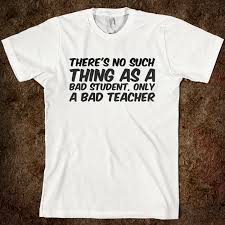
by Fitz | Apr 7, 2014 | Essays, Journal, Teaching
Who forgets to rinse his hair?
Me, I guess, for that was the start of my day. I smelled something like coconut oil on my way to school, and then I realized, dang, my hair is still pretty wet.
Wet with hair conditioner.
And then I get sot school all coconutty smelling and all these 8th grade kids are freaking out about some reading response I assigned to them, and I’m like, “I didn’t assign a reading response.”
I did. I messaged the 8th grade class telling them to write a reading response instead of my 9th grade class who was supposed to write a reading response. And now you’d think I should be reported to the lousy teacher bureau…
So, yeah, my day did not start out so hot, but not to worry: the mechanic just called and said my truck needs a new engine, so driving to work with smelly, oily hair is not such a big deal after all.
But, enough about me. How was your day?

by Fitz | Apr 6, 2014 | Essays, Journal, Teaching
Just because no one understands you,
it doesn’t mean you are an artist
~Bumper Sticker
I sometimes wonder why when you give a group of teenagers a video camera, the first impulse is to shoot something stupid. It’s as if there is some jackass switch connected to the “on button” when shooting video: Video on. Now let’s film something stupid and forgettable. “O’ look, I am being wicked funny…”
Or even better: “Look what this special effects does to my face and VoOiiice.”
And so teachers like me who have tried it before and know what “once burned twice shy” really means avoid doing it again. So go away video cameras and iPhones and iPads, and go open up your word processor and write, gubdummit, like we (the teachers) had to do!
Damn technology.
But there is another way. Because words are never uttered out of the dryness of death. Words are the children—the precious and precocious children—of potentially deep and subtle thoughts formed into sound, shape, and form, and that sound, shape, or form is only important in carrying that word–or spree of words—into the mind and heart and soul in the most direct, effective and practical way.
Only sometimes is that “way” the written word. Usually words are simply the waves of sound carried and shared within human interactions. Sometimes those waves spew out of the screens of tv’s, iPod, iPads, and any other device that captures reformats the original form of the word—and in the history of the world, that’s pretty cool.
And empowering.
Maybe I’m weird, but I’ve always wondered what Jesus might have said on the cross beyond what was remembered by the apostles who were there? What would an interview with Buddha really be like? What would a Socratic seminar look like if it were run by Socrates himself? What would Socrates look like? I could wonder all day….
So to cut this short, this is my plea to you: appreciate the opportunity you have. You live in a gilded age in a gilded palace, and you are being asked to step a bit higher on the podium of life by putting your best words into the best medium ever created by man—images and actions and words and sounds wedded together into something called “art,” for anything done well enough is an art.
I am going against the dictates of my experiences, and I am giving you video cameras and a rough outline of what I hope you will do, which is to create thoughtful and engaging reflections, summaries and analyses of different chapters of the books we are reading using videos as our way to engage the heart and minds of our audience.
It means figuring things out; it means learning new ways of doing things; it means avoiding excuses like cold mixed vegetables and to embrace change like a man running out of a burning building, and it means to start now by planning, preparing, and producing.
This is the idea. The details will follow in class on Monday.

by Fitz | Mar 4, 2014 | Essays, Journal, Teaching
To succeed, jump as quickly at opportunities
as you do at conclusions.
~Benjamin Franklin
Maybe we are born more to ignore than to listen. I understand too well how easy it is to ignore the blatherings of teachers. I was a master of it once myself, so why should I expect it to be any different for you? Very few of your lives will be diminished, nor will any irreparable harm befall those of you who choose to ignore my blathering rather than to listen. It’s your choice. You 8th graders are writing your epic poems that (hopefully) are trying to recreate the heroic cycle in new and original ways, and by and large it seems to be working: words are being wrought out of the ether of stale air and transformed into images and actions, thoughts and plots, and heroes and anti-heroes–and few of you seem to be struggling with the 250 line minimum. At this midpoint in the assignment, all I can ask is to keep at it. If you reach the 250 line minimum, and I can “see” that you are putting in a strong and consistent effort, but still have more to go, I will gladly give you an extension until after the break.
But you 9th graders. You are up against a hard deadline. Friday morning is the Poetry Slam where you
have to be ready to go–ready or not! By now you should have a good “body” of poems to choose from that will showcase you team and position your team as the best in the ninth grade. All of you will have two rounds of four poems each that will be judged by a picky group of judges–your teachers! If they like what they hear, you will make it into the final rounds, and at that point one of my class teams better win. I’d hate to have to listen to Mr. Farley for an entire year gloating how he beat the “poet’s class.”So for all of you–8th and 9th alike–work like mad. Transform opportunity into production. Make things better. Read everything I have posted about how to tell an epic story. Go back to your poems and get rid of the dull, mundane, oversold cliches and make your poems ring like hard steel on a cold day. Pay attention to form and structure, rhythm and flow, revising, proofreading, editing–do everything and anything that shows you give a damn.
These are not just words and games. They are all of you making stuff that will last longer than any of your lives. It’s eternity time.
And those opportunities don’t happen every day.
But blathering does.
by Fitz | Feb 26, 2014 | Essays, Journal, Teaching
It’s hard to make chicken salad out of chicken manure

Dirty hands are a good sign, so hopefully, you got some mental mud on your hands and created some content to work with today. To a starving man, any food is good food–unless it is pure manure. It is the same with poetry: if you have thoughts, ideas, directions, images and actions–really anything that implies “content”–you are a good part of the way towards making a poem out of a hash of words .
It may well be that you poem evolves away from your original intent, but that is a natural part of the creative process, but first you have to make sense of either the mess you created–or you have to make poetry out of dull and flavorless sentences. Either way it is the work of a poet–so, as much as possible, live as a poet.
I live in the world of real images and actions because I know that a series of images and actions creates an actual physical response in a reader as the brain renders those images using the motor or more primal functions of the brain. It is my job as a poet to force my readers to then have “think” about what those images and actions now mean, and so a “higher” function of the brain is brought into play, as in this short poem I wrote about a husband dealing with the loss of his wife in the 9/11 tragedy:
9/11/04
It is so quiet still
three years on,
wondering why
he didn’t hold her
longer,
knowing
one more kiss,
one more sip of coffee;
one more search
for the missing bookbag,
would have kept her
from rushing
to the train.
In this poem it is my title that sets the scene, which is followed by a few images and actions–and then a simple, but I think effective twist, that expresses regret at what happened, but that also hints that if only he had showed more love his wife would have missed the train that carried her to her death.
My main point here is that images and actions can be the foundation of any good poem, and if you are stuck and in a “poetic rut,” you can climb out by immersing yourself in recreating a scene using images and actions–nouns and verbs–to describe a situation.
And then all you gots to do is add a twist that makes it little more out the something that came before it.
by Fitz | Feb 16, 2014 | Essays, Journal, Teaching
The rain falls;
The grass grows:
Nothing is done.
Nothing is left undone
~Buddha

Sometimes you just do what you got to do, and that never changes from the first time you take out the trash as a kid until the time in life where you are taking care of little chores in your retirement home somewhere–hopefully somewhere warm:) Attending to the small and large chores of life is part and parcel of being human. Sometimes those chores are self-serving; sometimes they serve some community/family you are a part of, and sometimes they are just “things” that you do because no one else seems interested in taking care of that chore; but, in all cases a chore, by its very meaning, implies doing something you might rather no do…but you do it anyways. We all have chores to take care of. How you approach those chores says a lot about your depth of character, and as much as any other quality you have determines your future success in life.
You might be thinking, ‘O, man, I’m in trouble because I hate chores and expend more time and effort avoiding them than it would take in simply doing them,’ but luckily that’s a natural response of adolescence; however, it is a horribly bad habit to continue as a youth–and downright irresponsible as an adult–if only because as an adult “you should know better.” By the time you are an adult you will have seen and experienced the downside of neglecting chores, which is probably why most of us parents can be pretty obnoxious when it comes to making our kids do what they should and need to do. When I was a kid Saturday morning was always our time for chores–and it was time for chores for any friend of mine that happened to come by our house, and for some reason, I remember a lot of friends showing up to help with our chores. Maybe because they liked hearing my father call me
lame-brained or a
knuckle-head whenever I did something less than perfect, or maybe (and I like to think this is true) it was because there was a certain nobility around how the Fitz’s did their chores. Chores were never a point of discussion; chores were more a ritual that kept our little slice of heaven on the corner of Longfellow and Paul Revere Roads a place where everything important to the neighborhood seemed to happen with an uncanny consistency and longevity.
So, perhaps this morning you are putting off your chores, and in a way I am doing the same. When I should be compiling your grades and writing comments to your parents summarizing your efforts this past winter, I am penning my own words–perhaps to make sense of this chore I need to do because, to be honest, I don’t really want to spend the six hours or so it takes to get through my four classes, but it is what needs to be done. In the same way, there are probably a few chores you can attend to today or tomorrow. When Buddha said, “Nothing is done; nothing is left undone,” he wasn’t advising us to do nothing; he was just pointing out that when the rain falls, the grass grows.
Like the rain, today magically appears.
At the end of the day, what will you have done?






